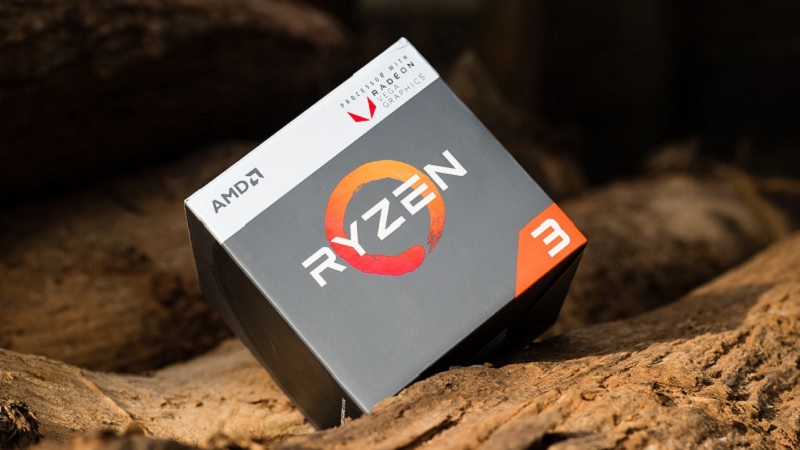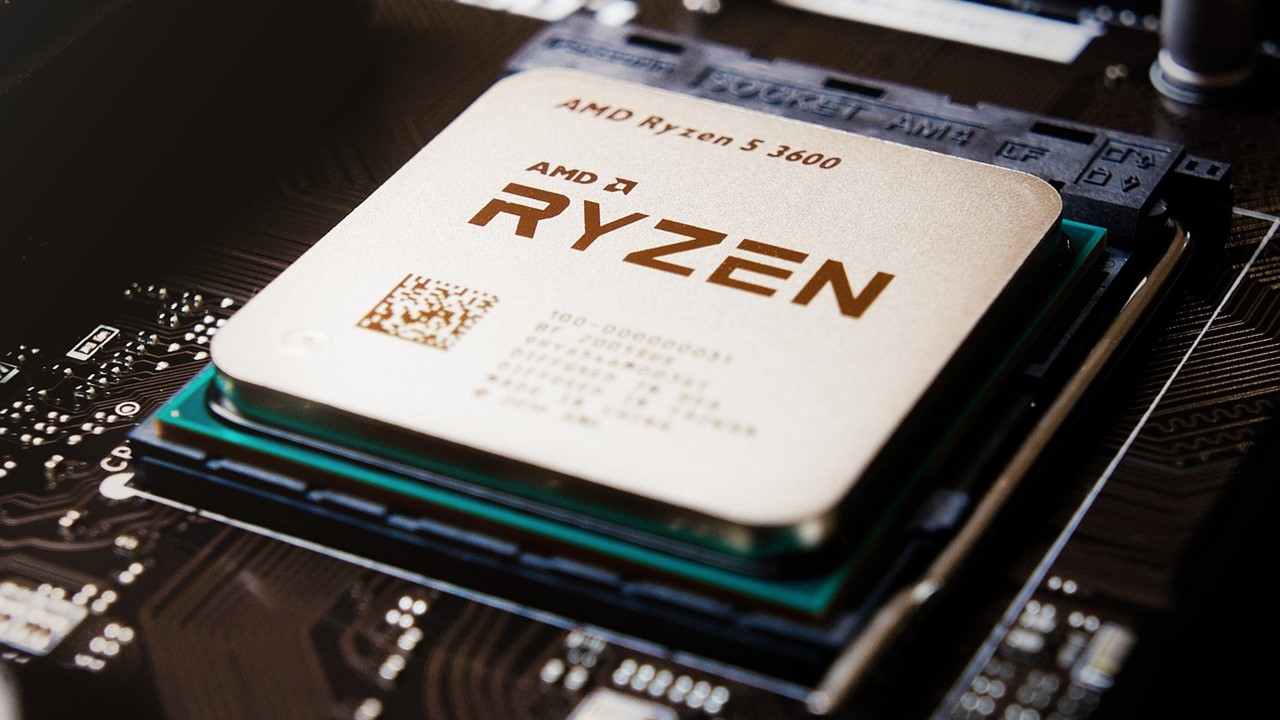In This Article
What is Ryzen?
Ryzen refers to the line of processors designed by AMD. These processors typically use AM4 socket type and run on the Zen microarchitecture.
This is the brand of multi-core x86-64 microprocessors that consists of CPUs as well as APUs.
KEY TAKEAWAYS
- These CPUs were released first in March 2017 and are considered to be the direct competitors of the Intel Core i3, Core i5, and Core i7 processors.
- The AMD Ryzen mainstream desktop processors are made on the Zen microarchitecture and use AM4 sockets.
- The Ryzen CPUs are considered good to use for high-end gaming and for general productivity as well.
- The Ryzen CPUs are targeted at the mainstream, server, workstations, and enthusiast segments, while the APUs are usually used by the entry-level and mainstream segments and embedded systems applications.
- AMD Ryzen CPUs and APUs come with a lot of different useful features such as high Level 3 cache, multiple cores, threads, PCIe lanes and others to offer a higher level of performance at a high speed.
Understanding Ryzen

The Ryzen processors are from the house of AMD, or Advanced Micro Devices, and comprise both Central Processing Units or CPUs and Accelerated Processing Units or APUs.
Product Lineup:
The AMD product lineup consists of different series and models of Ryzen processors. For example:
- The Ryzen 1000 series consists of CPUs only.
- The Ryzen 2000 series consists of CPUs as well as APUs for desktops, mobile devices, and for embedded systems.
- The Ryzen 3000 series consists of CPUs and APUs for desktop computers and mobile systems.
- The Ryzen 4000 series consists of CPUs as well as APUs for desktops, mobile devices, and for embedded systems.
- The Ryzen 5000 series consists of CPUs as well as APUs for desktops and mobile systems.
- The Ryzen 6000 series consists of APUs for mobile systems.
- The Ryzen 7000 series consists of CPUs for desktops.
The AMD Ryzen 8000 series are however in the pipeline and was shown in May this year. The analysts expect that it will have a 3 nm fabrication technology node and will be built on the newer Zen 5 architecture.
OS support:
The Ryzen processors support the Windows operating system and will boot both 32-bit and 64-bit Windows 7 and Windows 8, but will need newer hardware.
It may even support Windows 10, but the updates may be blocked.
And, Windows 11 is supported officially only on Ryzen APUs and CPUs that have Zen+ architecture or higher.
Systems operating at lower Zen architecture levels are not permitted to get updates.
The features of the Ryzen processors offer full support for the Linux operating system, but for that, it will need kernel version 4.10 or higher.
Features:
Different versions of Ryzen processors come with several useful features such as:
- Multiple cores and threads
- Higher amount of DDR4 memory support
- Multiple PCIe or Peripheral Component Interconnect Express lanes
- Large Level 3 cache
- Smart prefetch
- Neural net-based prediction hardware
The maximum clock speed of the Ryzen processors, depending on the generation and model, can range anywhere between 3 GHz and 5.7 GHz.
And the HyperTransport speeds of these processors may range from 800 MT/s to 2000 MT/s.
As for the architecture and other classifications of the AMD Ryzen processors, the technology node can be anything from 14 nanometers to 5 nanometers, depending on the particular model in question.
The number of cores in different models of AMD Ryzen processors may vary.
For example, the mainstream processors may come with 8 to up to 16 cores, while the HEDT, or High End Desktop, variants may have as many as 64 cores built into them.
As for the sockets used, the mainstream desktop variants usually use AM4, while the HEDT typically use TR4, sTRX4, and sWRX8 variants.
However, for the consumer desktop Ryzen processors, AMD has plans to use the new Socket AM5 platform along with the Zen 4 products by late 2022 or early 2023.
Microarchitecture:
Typically, the AMD Ryzen processors are based on different versions of the Zen microarchitecture such as:
- Zen
- Zen+
- Zen 2
- Zen 3
- Zen 3+
- Zen 4
Instruction sets supported:
On the other hand, different models of the main processors offer support for different instruction sets such as:
- x86-64
- MMX(+)
- Streaming Single Instruction Multiple Data Extension 1 or SSE1
- SSE2
- SSE3
- SSSE3
- SSE4a
- SSE4.1
- SSE4.2
- Advanced Vector Extensions or AVX
- AVX2
- AVX-512 with Zen 4
- Floating Multiply Add 3 or FMA3
- F16C, formerly known as CVT16
- Advanced Bit Manipulation or ABM
- Bit Manipulation Instruction Set 1 or BMI1
- BMI2
- Advanced Encryption Standard or AES
- Carry-less Multiplication or CLMUL
- Read Random or RDRAND, also known as Intel Secure Key Technology
- Secure Hash Algorithm or SHA
- Secure Memory Encryption SME
- AMD Virtualization or AMD-V
- AMD-Vi
And, the AMD Platform Security processor supports the ARM Cortex-A5 processor architecture.
Number of transistors:
The performance level of the Ryzen processors is usually very high and fast, which is due to the number of transistors they come with.
This is one of the most significant aspects of their physical specifications.
Once again, different versions, microarchitectures, and fabrication technologies may come with different number of transistors built-in, such as:
- 4.8 billion for the Zen & Zen+ models and for each 14/12 nm 8-core “Zeppelin” die
- 5.89 billion (1× CCD) or 9.69 billion (2× CCD) for the Zen 2 models
- 3.8 billion per 7 nm 8-core CCD and 2.09 billion for the 12 nm I/O die
- 6.24 billion (1x CCD) or 10.39 billion (2x CCD) for the Zen 3 model
- 4.15 billion per 7 nm 8-core CCD and 2.09 billion for the same 12 nm I/O die
With such features and higher support, the Ryzen processors are good to use for a variety of computing activities such as:
- General productivity
- High-end gaming
- Video editing
- Broadcasting and more
Uses:
You can use the Ryzen processors in a variety of devices as well, which include:
- Desktop computers
- Laptop computers
- All-in-One computers
- Media center computers
- Servers
- Workstations
Is Ryzen a Good Processor?
Yes, the Ryzen processors are quite good and powerful to use in a variety of systems and for a variety of low-end as well as high-end computing tasks.
These CPUs offer a high level of performance and can handle greater workloads.
Is Ryzen Good for Gaming?
Ideally, the AMD Ryzen processors, especially the 3rd generation CPUs and later, offer excellent single-threaded performance with even more remarkable multithreading capabilities, making them one of the best processors ever made.
These features not only make them a perfect choice for high-end computing tasks such as transcoding and video editing but also an excellent choice for gaming.
Conclusion
The AMD Ryzen processors are a very good choice for all types of computing tasks.
You can use it easily and conveniently for your daily productive tasks as well as for playing some of the best and most demanding modern games.
Depending on the model, you will receive excellent features for a stellar performance.
